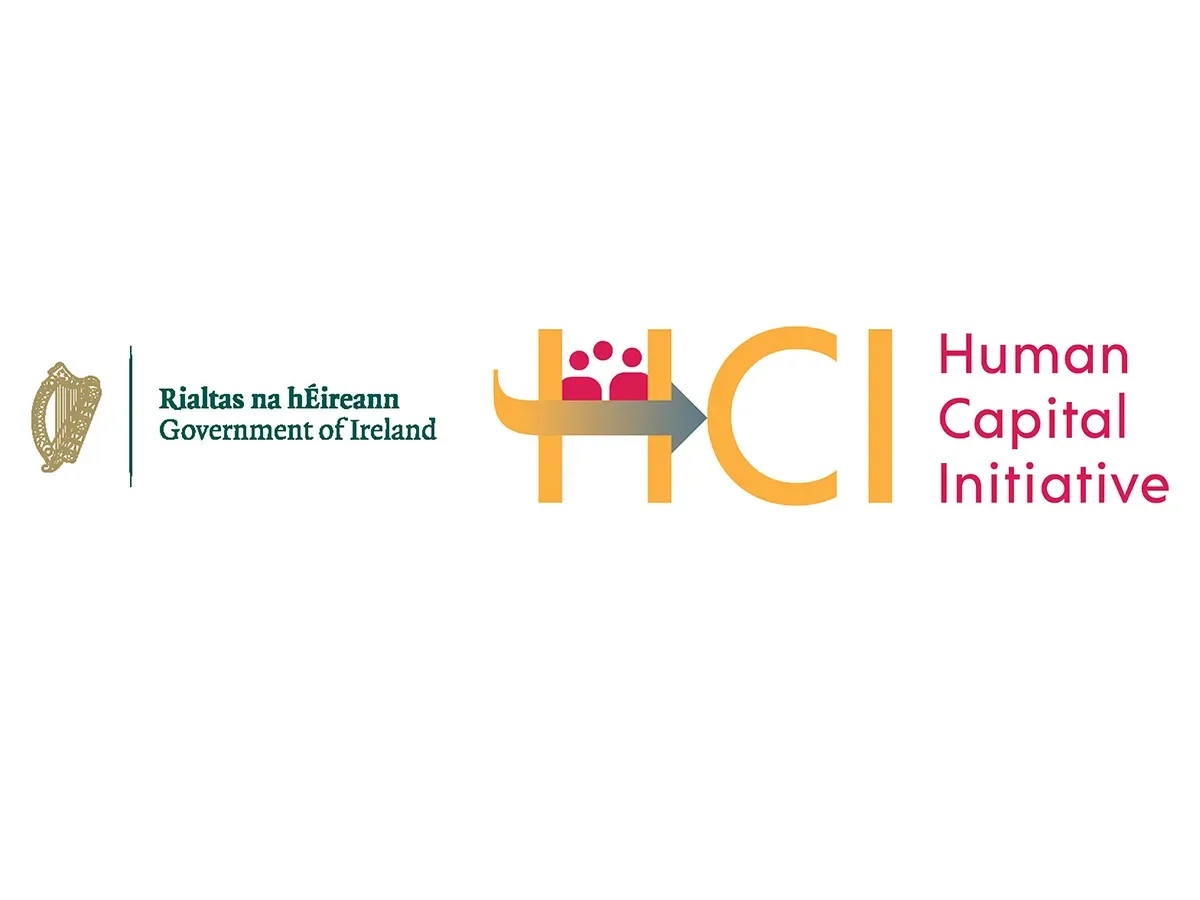

DCU showcases industry engagement at Human Capital Initiative Conference
The depth and breadth of Dublin City University’s ongoing engagement with industry was detailed at the HCI Pillar 3 Conference held in Dublin on Thursday, 29 June.
The meeting, held at the Convention Centre, was attended by academic researchers from across Ireland funded under the HCI, as well as senior civil servants, representatives of the funding agencies, the Higher Education authority and politicians, all keen to see academic and industry links.
Professor Blánaid White, the Dean of Strategic Learning Innovation at DCU, was invited to speak on an academic panel hosted by journalist Jonathan McCrea entitled ‘Navigating Change – Higher Education’s Adaptation to a Rapidly Changing World’.
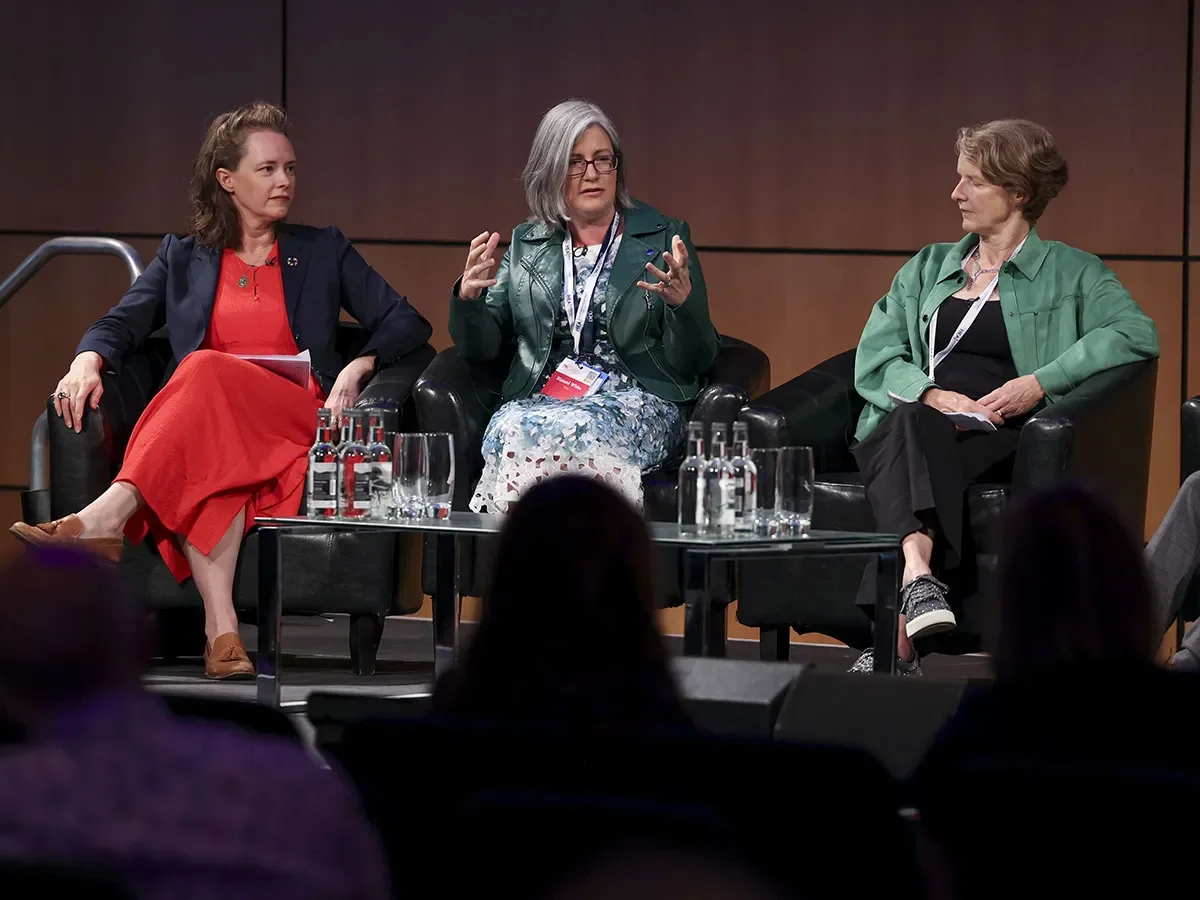
We have a number of ongoing, deep and meaningful partnerships with industry to understand their needs now, and in the future. We are incorporating the development of skills and capabilities to address these needs into our programmes.
In the panel discussion, Prof White said that DCU’s industry engagement is both student centred and employer focused, that transversal skills can be taught to students as part of that engagement, and this helps embed lifelong learning skills into DCU’s degree courses.
We are not an industry training body, but we are engaging with industry to have industry ready graduates both for now and in the future. That does not in any way mean that we are losing our focus as an education first institution.
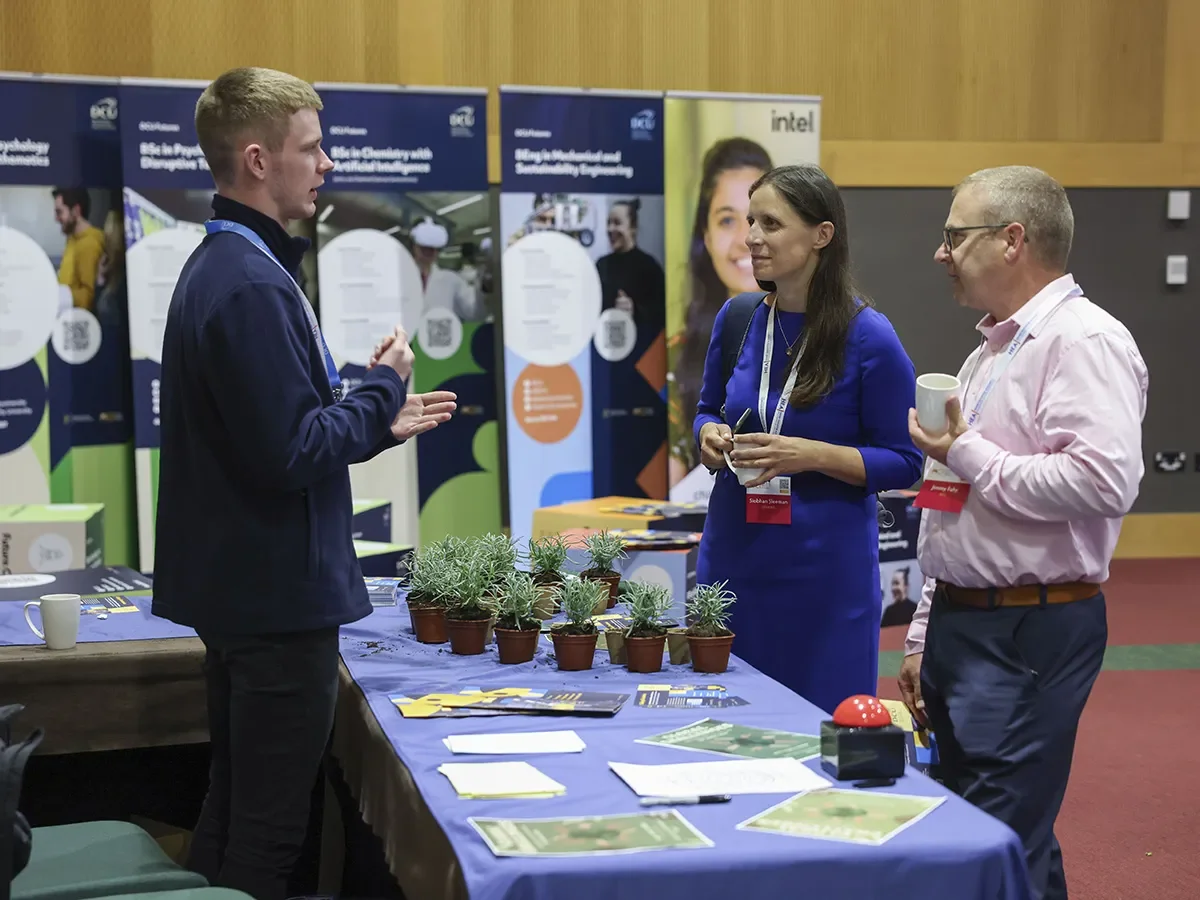
Prof White said the partnerships built with industry are deep and authentic.
It begins at the start of the process, with content design. Industry has the opportunity, while working with DCU, to influence what students are learning and how they are learning and many of them came along to highlight the benefits of their ongoing links with DCU.
DCU-Industry Case Studies
Sartorius
This German giant, who have an Irish subsidiary, is one of the largest manufacturers of biotechnology equipment, bioreactors and related software in the world. When Brian Freeland, Assistant Professor of Biotechnology was asked to get involved in setting up a new bioprocessing degree he approached Sartorius - who have long links with DCU - and asked them did they want to be involved. They said yes, and negotiations are underway to iron out the details.
The partnership will see DCU students getting access to Sartorius’ advanced equipment and process analytics software. They will also get the chance to work on their digital twin technology, where processes are tried out virtually, and feedback given, before they are run in the real world, at optimal levels.
The Sartorius software is run during the testing of a process through a digital twin, where all the characteristics of a real-world process are tried out. This helps to select the right parameters a process requires to operate efficiently.
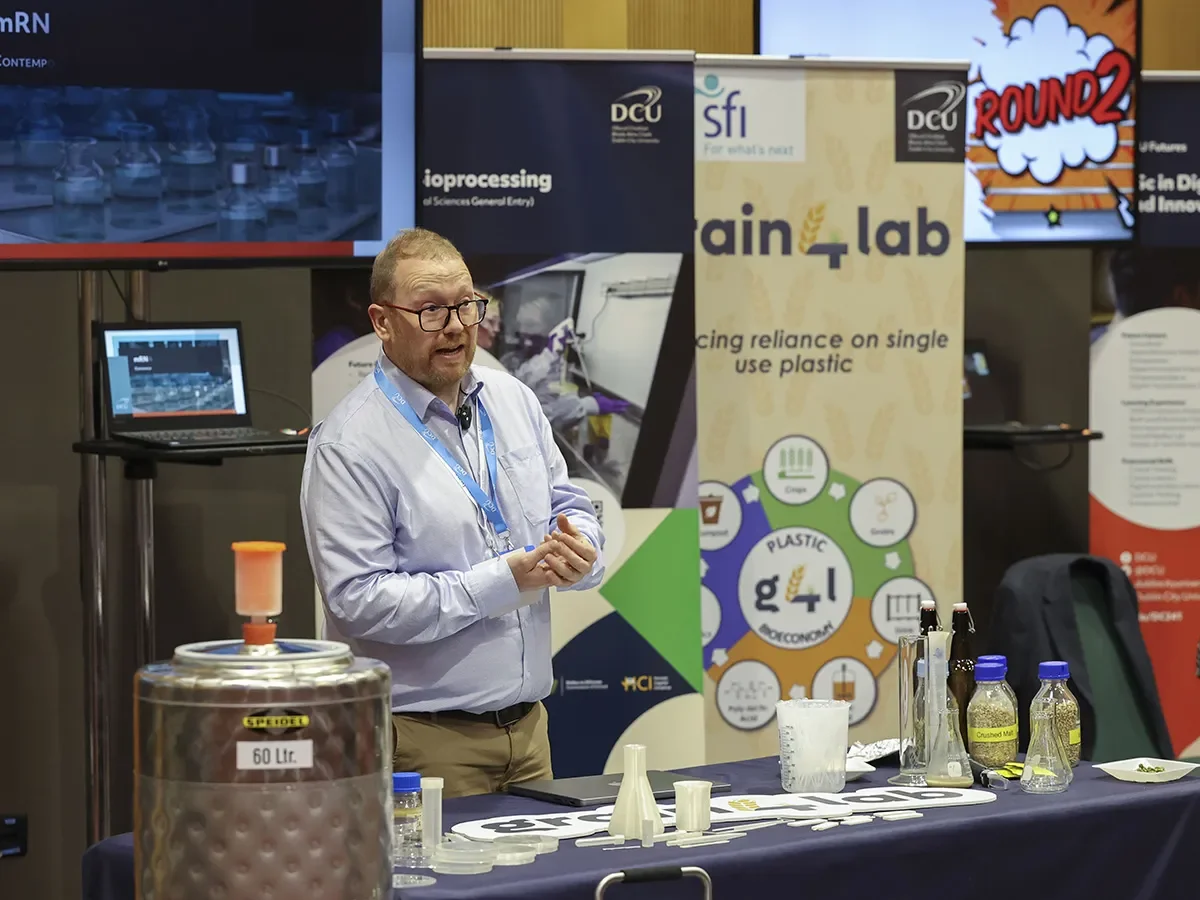
Sartorius are getting access to students, who would be in line to work with some of the major biopharmaceutical plants in the world, based in the Dublin region. The company see these students as, potentially, being part of the company’s future. They also see the collaboration as an opportunity to influence the Irish biopharma industry by showing the students what their advanced software and equipment is capable of. These students, who may be decision makers in five- or 10-years’ time will then be familiar with Sartorius.
From the DCU perspective, the Sartorius collaboration means there is an opportunity to teach the students on the most high-technology equipment and design processes and software that is available to the biopharma industry. The constant engagement with Sartorius, a world leader in biopharma equipment and technology means students when graduate with the most up-to-date skills.
“It's a perfect fit”, said Professor Freeland.
It offers students experience that is hard to get. We have had an ongoing relationship with Sartorius for 20 years and have always had Sartorius bioreactors in our pilot plant. This is just a continuation of that relationship. We are bringing this collaboration into our fourth-year undergraduate programme. It is going to offer huge advantages for the school, and in terms of students working in biopharma afterwards.
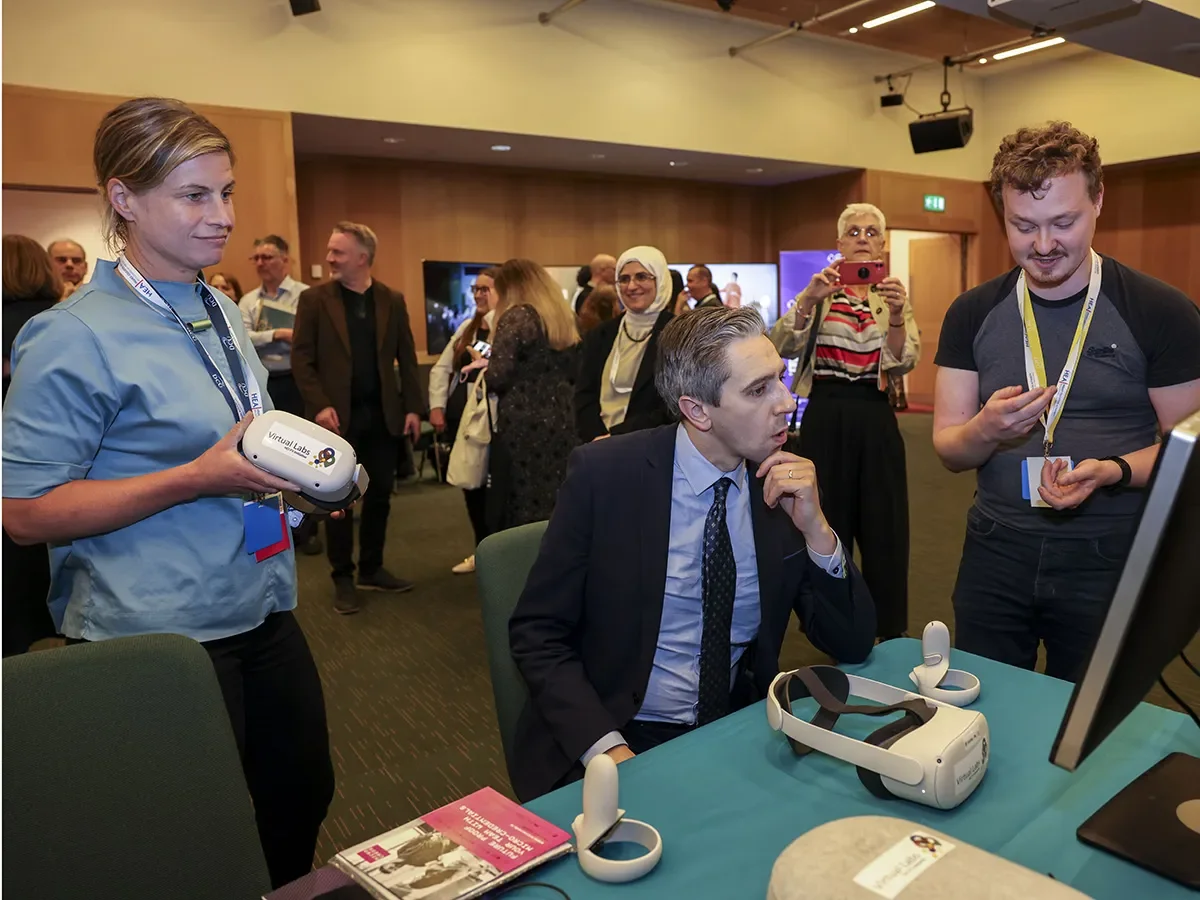
Alltech
Alltech is an animal feed company with a long DCU connection. They want to maintain food production going into the future. Food safety is a big part of that, and they want to develop optimal feeds for beef, poultry and swine.
When Alex Eustace, Assistant Professor of Biotechnology was asked to get involved with the new bioprocessing degree, he reached out Alltech to see whether they might be interested in being involved. They were, and there followed an intense engagement, with regular meetings held over 12 months.
The content to be delivered to the students was discussed with Alltech representatives, particularly where it related to the agri bioscience sector.
We designed interactive books and gave them to second year bioprocess students as part of a challenge-based learning module,” said Prof Eustace. “This year was the first year that was run, and it was very successful. It was content co-designed by DCU and Alltech.”
The students were grouped into groups of four of five underneath one of a number of headings including vaccine production, sustainability, and Agri biotechnology. They were challenged to come up with a research question in one of the areas identified by Alltech and given five weeks to find a solution.
“We had 17 students through the year, and the area of biotech that we decided to focus on related to the growth of spinach, a high nutrient crop, easily grown,” said Prof Eustace.
The idea was to increase the vitamins in spinach to improve the dietary intake of the Irish population, and by producing the spinach here to reduce the packaging waste from overseas spinach, and the carbon dioxide emissions expended during its transport here.
There is also a focus at Alltech on looking at ways to secure Ireland’s food supply, with food security coming under particular threat since the Ukraine war interrupted supplies of grain from the region. Course material was designed on this topic too.
The course will be relevant for the next two to three years, and at that stage we expect it will be adapted to take account of new challenges coming along,” said Prof Eustace. “This collaboration helps students be more aware that they’re not isolated from industry. They are encouraged to engage with real challenges which makes them more employment ready. The students are still learning the same amount of basic knowledge and content, as they require, but they are also getting a more applied focus. For Alltech it means that they get access to the future graduates they need to join their company and that’s important given the shortage of graduates.
Dr Richard Murphy, Director of Research at Alltech said that given the ever-changing nature of employment, and what’s required of graduates, it’s important that graduates’ learning experience reflects this.
DCU are thought leaders in reconceptualising learning opportunities and enabling graduates to thrive in a rapidly changing workplace. The emerging skills areas that DCU have identified are increasingly required in the workplace and the program will ensure that future graduates are best placed to meet the needs of employers.
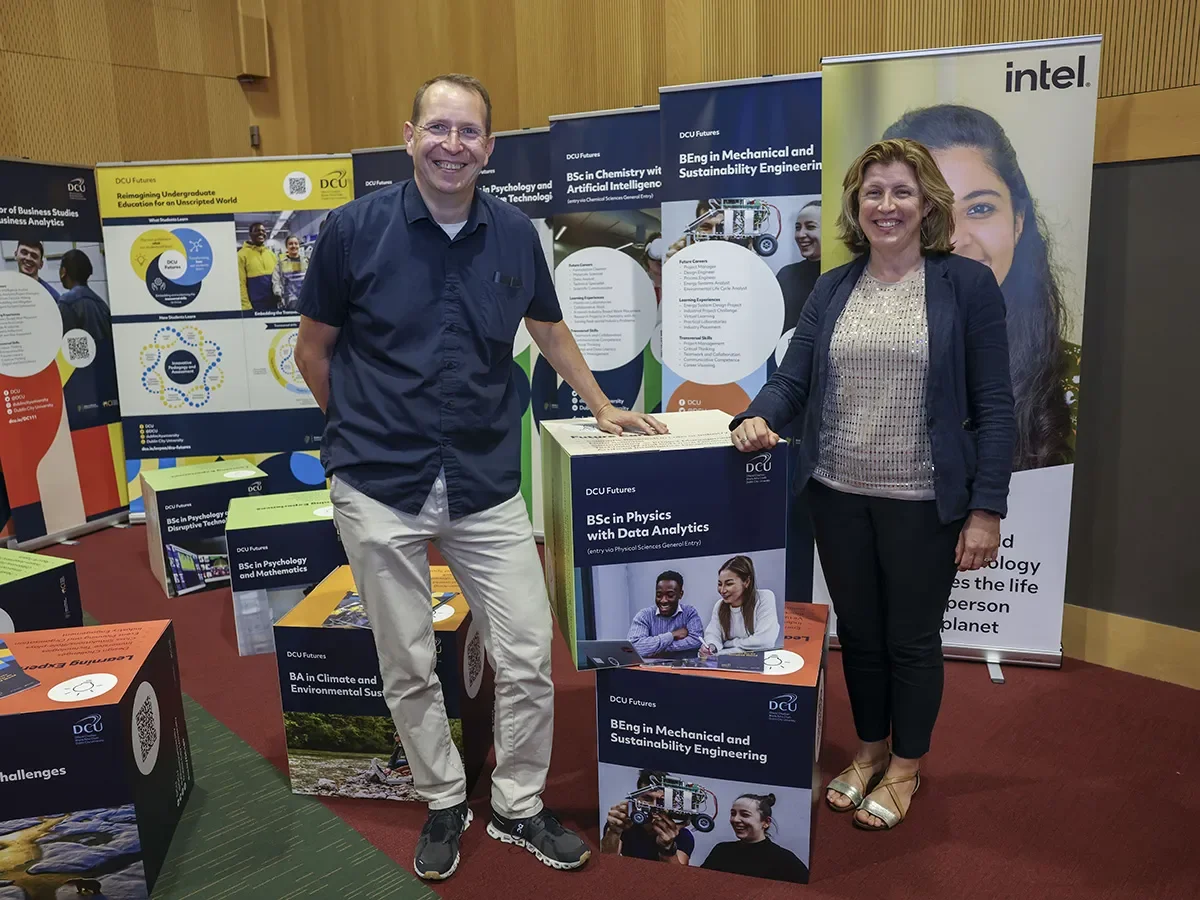
Intel
Professor Enda McGlynn, School of Physics, teaches a module to his second-year physics students on data analytics, which has input from Intel.
Guest lecturers from the Intel Research Division in Portland, USA have come over to talk to the DCU students about data analytics, advanced memory devices and quantum computing.
“It is inspiring for students to listen to such people talk about the next generation of devices or computers,” said Prof McGlynn. “The lectures that were given by Intel people were excellent, and they took account of the level the students were at on their course and adjusted their content accordingly.”
There is huge competition out there for students with data analytics skills now with graduates going into companies like Accenture, as well as Intel and the traditional data science companies.
“Intel is focused on their talent pipeline and getting their employees of the future who are going to be able to follow the technology as it moves into quantum forms,” said Prof McGlynn.
Their collaboration with DCU gives Intel a chance to connect with the student body in a very direct way, and to scope out future graduates for future roles within Intel. It helps them put themselves in front of undergraduate students at an early stage.
“With future jobs increasingly being underpinned by technology and with the number of job opportunities in technology expected to continually grow, it is crucial that graduates are armed with the necessary skills to make that transition into industry,” explained Jennifer McKenna, European Project Manager in the area of research at Intel.
Through the alliance with the DCU Futures team, Intel has participated in activities to highlight the need for transversal skills to be successful in industry. This valuable collaboration between the two organisations ensures there is a dedicated and qualified pipeline of talent for the tech industry.
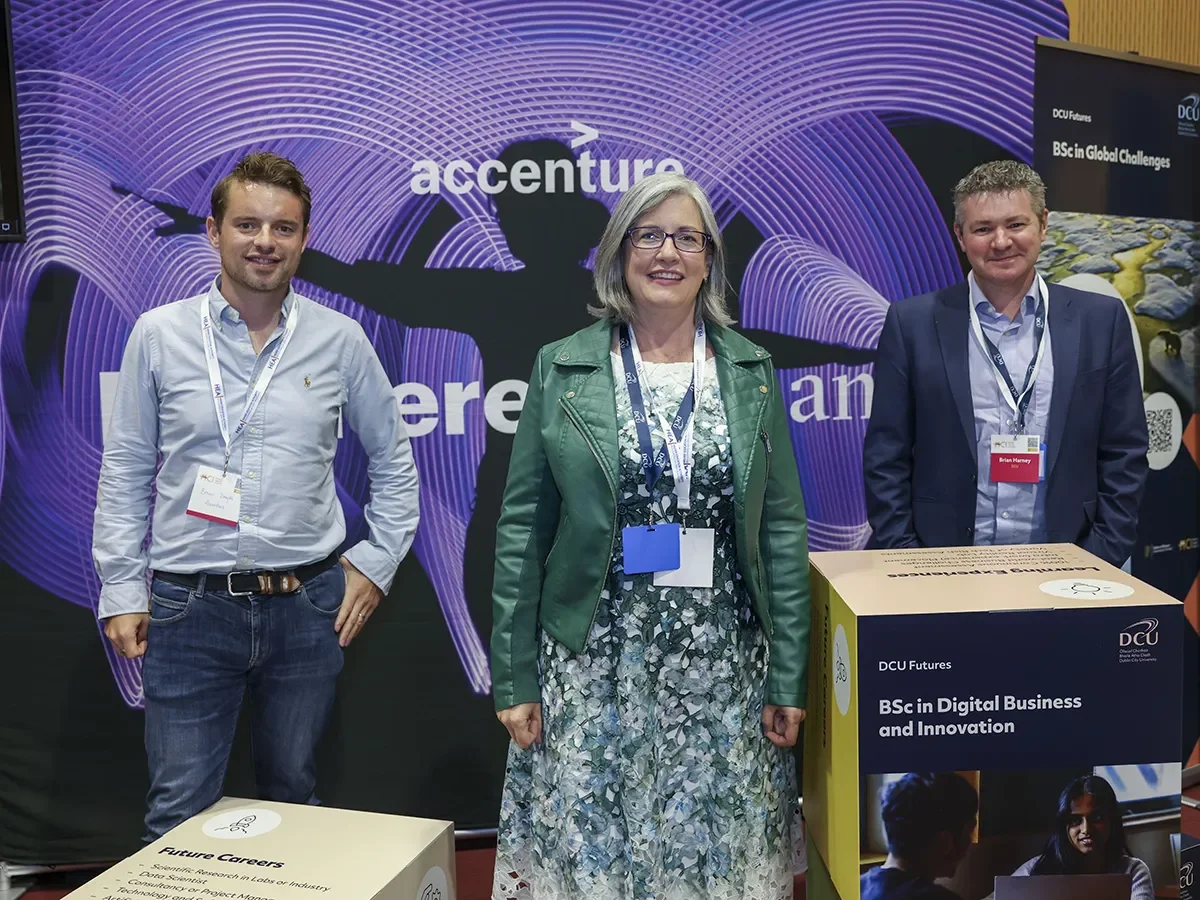
Accenture
Brian Smyth graduated from DCU with a degree in Business Studies in 2006 and currently leads Innovation for Accenture's Communications and Media Industry globally. He explained the importance of collaborating with the University on course content:
Accenture have put a clear stake in the ground to be the global leader in the application of next generation technologies to solve business problems. Connecting with the academic world is essential for this and bringing top talent into our organisation from DCU whether as interns or graduates is an essential ingredient. With the velocity of change in the world continuing to accelerate, hiring graduates who are resilient, creative and comfortable with ambiguity is essential to success. DCU Futures is clearly leading in this field, developing transversal skills that will set graduates up for success beyond the exam hall - whether working for leading organisations or running their own business or social enterprises.
About DCU Futures
The DCU Futures initiative aims to transform the educational experience of undergraduate students by reconceptualising their learning experiences, creating authentic connections between the classroom and enterprise, and embedding digital literacies, disciplinary competencies and key transversal skills that will enable our graduates to thrive. the project is funded under the Irish government’s Human Capital Initiative (HCI) supported by the National Training Fund, and will deliver on DCU's ambition to reimagine undergraduate curricula through a combination of innovative teaching and learning approaches, enhanced use of technology, and deep industry engagement.
